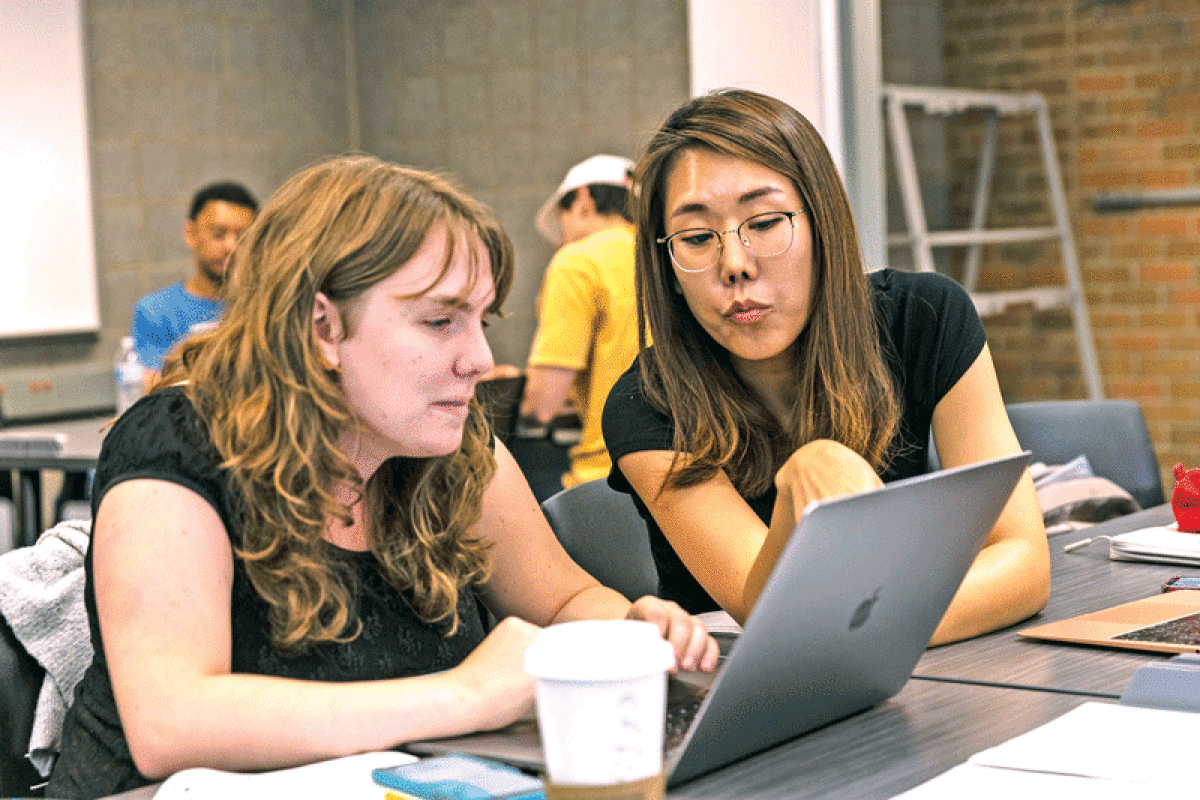OAKLAND COUNTY — Oakland Community College in Farmington Hills, along with the other 27 community colleges in Michigan, was recently “strengthened,” thanks to a $750,000 grant awarded to the Michigan Community College Association from the Kresge Foundation’s Education Program.
In 2011, the Kresge Foundation helped to fund the creation of the Michigan Center for Student Success in Lansing, and this year’s grant will help support the center’s operations, developmental education work and other student success priorities, according to a press release.
Erica Orians, who is the executive director of the Michigan Center for Student Success, provided a synopsis of how the grant can help benefit students.
“The Kresge Foundation has been a generous supporter of the Michigan Center for Student Success for over 10 years, and we were recently awarded a $750,000 grant from them to expand our support of community colleges who are doing student success work across the state,” Orians said. “We serve (as) a complement to the various student success initiatives going on (at) local community college campuses by convening colleges statewide so they can learn from peers across the state, adopt best practices from other institutions, and lean into each other to do some of this work together.”
Orians said that the grant will help support the work of the center.
“We will be hiring new staff who focus on improving our communications across the state, and we’ll be doing some other developmental education as students come to community colleges,” she said. “We want to do a better job of supporting students who are under-prepared for college-level work. So much of those resources — it’s not divided out across the campuses — it goes to support the work that we do at the center.”
OCC College Readiness Dean Beverly Stanbrough provided an example of how the Kresge Foundation’s support can benefit students.
“When any of the community colleges are looking for transfer networks to share with students, they’re able to get real-time information on courses that you take at any community college that’ll transfer to a four-year institution in the state of Michigan,” Stanbrough said. “So the resources that the Michigan Center for Student Success receive through the Kresge Foundation allows the collaboration of community colleges across the state of Michigan to support the students consistently and provide resources so that they can be successful to meet their educational goals.”
You can also count Kristin Carey-Li, who is a project manager for Oakland Community College’s office of institutional effectiveness, as a proponent of the grant.
“The Kresge Grant was what really helped establish the center in 2011, and it’s what helps continue it,” Carey-Li said. “Having this opportunity to bring all the community colleges together, try to be consistent, figure out the best way to collaborate, work within all the systems and with the four-year partners is really, really useful. … Everything we work on, they end up being one of our No. 1 sources for support, guidance and strategy, so we’re so grateful that Kresge established it and that they’re continuing to make it a resource for the whole state.”
From Stanbrough’s perspective, the grant has helped in ways that go beyond mere educational assistance.
“Through the grant and the Michigan Center for Student Success, we were able (to) connect resources for our students so that those resources are over and beyond the educational challenges that they face; they’re able to connect with those resources immediately, in case they needed housing, in case they needed food, in case they needed laptops, at the time when we really were into COVID,” Stanbrough said. “That’s one I really felt helped benefit our students, because we couldn’t get out to our individual students within their homes, but we were able to create a resource on our website through our counseling webpage, through Oakland Community College, to connect partners with students to assist them. So that My Best program was beneficial for our students — assisted them with things (that) as an educational institution, is not part of what we do. … And then they were able to register for classes, be successful, and (it provided) them with resources so that they (could) continue their education through the COVID challenges that we all faced.”
MCCA President Brandy Johnson shared some thoughts about the grant.
“We are extremely proud of the impact the Michigan Center for Student Success has had for community college students since its inception in 2011,” Johnson stated via the release. “We are grateful for Kresge’s continued support, ensuring the success of our students now and into their futures.”
The Kresge Foundation Education Program “works to increase college access and success,” according to the release.
“The Kresge Foundation is committed to the success of Michigan’s community college students,” Kresge Foundation Education Program Deputy Director Caroline Altman Smith stated via the release. “We are so proud of all that the Michigan Center for Student Success has accomplished in the past decade and are excited about the work ahead to continue to support the state’s community colleges and the students they serve.”
Orians said that the Michigan Center for Student Success was created by the MCCA and focuses on providing state-level support to Michigan’s community colleges.
Aside from a focus on developmental education, she touched on some of the other ways that the center benefits students.
“We also do a tremendous amount of work across the state to help students who are transferring from community colleges to universities, to ensure that we minimize or eliminate the amount of credit that is lost when students transfer between institutions,” Orians said. “Another aspect of the work that we’ve been doing really focuses around connecting students with basic needs. One of the things that we’ve learned, especially during the pandemic, is that oftentimes, community college students who leave the college don’t do so because they can’t handle the academic coursework, they do so because life gets in the way — transportation, child care, food, housing. Some of those issues that are really indirectly related to their enrollment in college. And so we’ve been doing work to connect students with community-based resources and public benefits.”
Orians shared another avenue of support for students.
“And then the last area of focus in our work is around providing additional advising and guidance to students,” she said. “How can we help students in their career exploration? How can we connect students with classes that they want to take that lead to jobs with good, family-sustaining wages? … That’s the flavor of the work that we focus on at the center.”
Aside from being a pathway to a university and earning credits that can be applied toward a bachelor’s degree at “affordable” costs, Orians shared her perspective as to another advantage that community colleges offer.
“We are based in the communities that we serve,” she said. “We offer programs that are aligned with local labor-market needs, and our colleges work very closely with employers in the local community to make sure that our programs are meeting what they need out of their workforce. … That’s good for employers and it’s good for students, because it means there are good jobs after they graduate.”
Like so many other aspects of life, COVID-19 has also had a negative effect on community colleges.
“COVID had a really negative impact on enrollment at community colleges. I think there was a lot of uncertainty among students, and so we saw a dip in enrollment,” Orians said. “Our colleges work very hard to make sure that they’re still accessible to students, so while enrollment has declined over the last couple of years, I think colleges are working really hard to make sure that students understand that community colleges are still there, and it’s a great opportunity to prepare for the jobs of the future.”
Carey-Li discussed a trend that she attributes to COVID.
“What’s happening nationally through COVID is, for better or worse, students are looking more for online options,” she said. “We know students benefit from in-person learning, but they’re also trying to fit in their work schedules (and) family schedules, so we’re trying to figure out, how do you get that right balance of having a student on campus (and) having some, maybe, hybrid options that include both on-campus and online?”
Community college administrators are hoping that a couple of the primary reasons people have chosen to enroll over the years continues to be a selling point.
“I think affordability and local access are crucial reasons why people choose a community college,” Orians said. “I also think that the programs that we offer — they’re good programs — and I think that they prepare students very well for careers. And so, I think people see that as a great opportunity to further their education.”
 Publication select ▼
Publication select ▼





























